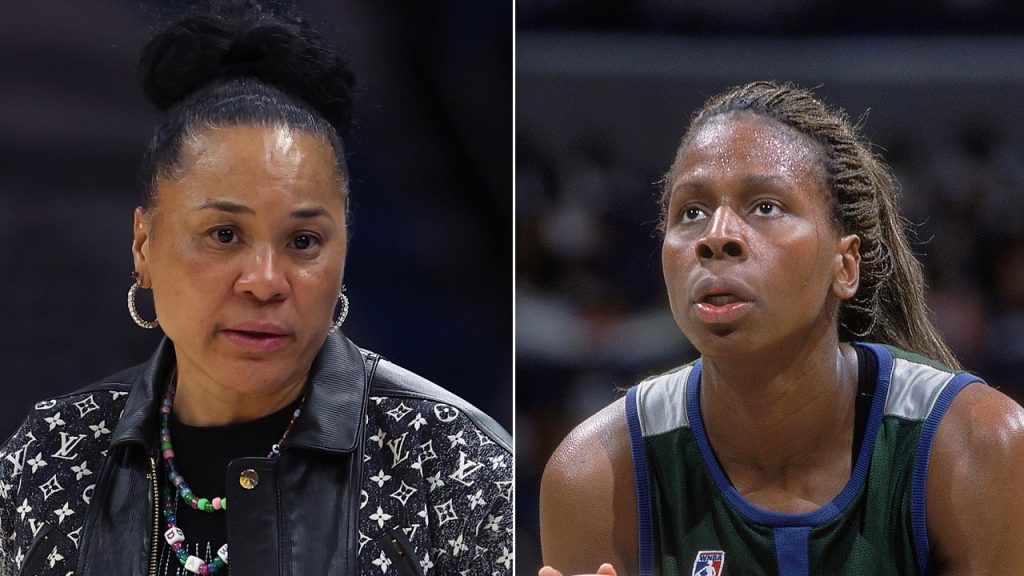Val Whiting, a former WNBA player and two-time national champion at Stanford, expressed her strong opposition to transgender participation in women’s sports on Saturday night. She believes that it is unfair and unsafe for biological women to compete against transgender women and that there needs to be another solution for transgender athletes to compete athletically. Whiting played in the American Basketball League and Women’s National Basketball League before joining the WNBA, where she played for the Detroit Shock and the Minnesota Lynx. She played during the same era as South Carolina Gamecocks head coach Dawn Staley, who also shared her thoughts on the issue.
During a press conference, Dawn Staley was asked about transgender participation in women’s sports. Staley stated that she believes if someone identifies as a woman, they should be allowed to play sports regardless of their gender assigned at birth. She expressed her support for transgender women participating in women’s college basketball, despite knowing that it may lead to backlash and distractions. Staley played for the Charlotte Sting and had a short stint with the Houston Comets in the WNBA. Her stance on transgender inclusion in women’s sports has sparked debate and discussion within the sports community.
The issue of transgender participation in women’s sports has become a hotly debated topic in the United States. While some, like Val Whiting, argue that transgender women should not be allowed to compete against biological women due to fairness and safety concerns, others, like Dawn Staley, advocate for inclusion and equal opportunities for transgender athletes. The conversation surrounding transgender rights and representation in sports continues to evolve as more athletes, coaches, and organizations weigh in on the matter.
Transgender inclusion in women’s sports has raised questions and challenges around defining gender identity and equality in athletic competition. Supporters of transgender participation argue that everyone should have the opportunity to compete based on their self-identified gender, while opponents raise concerns about potential disadvantages for biological women and the need for separate categories for transgender athletes. The ongoing debate highlights the complexity of navigating the intersection of gender, identity, and athletics in a changing social and cultural landscape.
Val Whiting’s stance on transgender participation in women’s sports reflects a growing divide within the sports community over how to address issues of fairness, inclusion, and diversity in athletic competition. While some believe that transgender athletes should be able to compete based on their gender identity, others argue for separate categories or eligibility requirements to ensure fairness and level playing fields. The conversation around transgender rights and representation in sports is likely to continue evolving as more voices, perspectives, and experiences contribute to shaping policies and practices in the future.
As the debate over transgender inclusion in women’s sports continues to capture national attention, athletes, coaches, and advocates are grappling with complex questions and competing interests. While there is no easy solution or consensus on how to address these issues, the conversations and dialogues taking place are crucial for promoting understanding, empathy, and respect within the sports community and beyond. The perspectives of individuals like Val Whiting and Dawn Staley offer valuable insights into the diverse viewpoints and perspectives that shape the ongoing conversations around gender, identity, and athletic competition.


